A better way to give?
How crowdfundings change the way people supporting charities
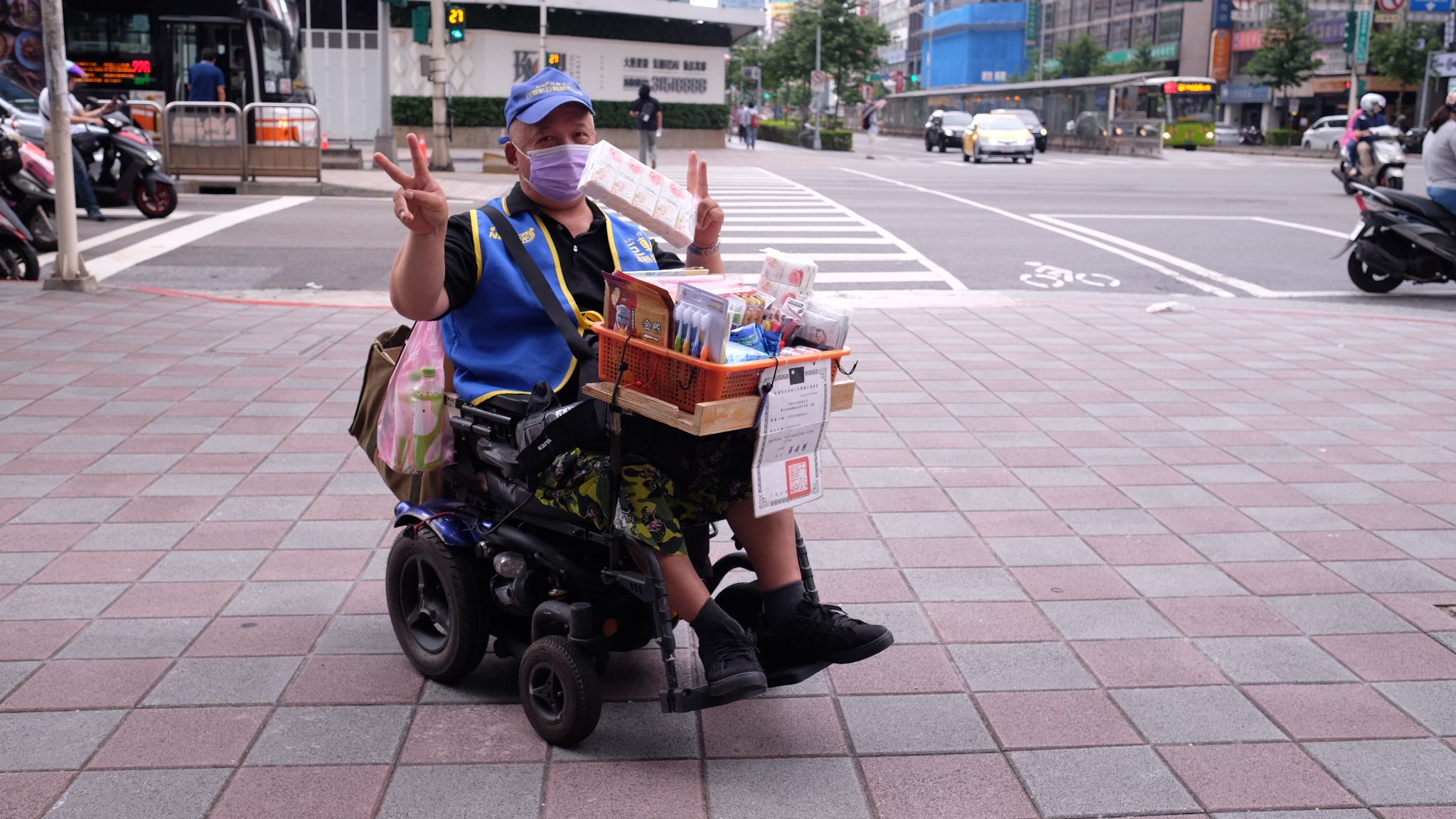
This was a very different Spring for most of the charities in 2020. An unprecedented life has arrived after the World Health Organization (WHO) officially announced Covid-19 as a pandemic to the world. Daily operations for the non-profit sector were forced to close, there are no charity parties for people to take part in, in addition, the economic recession is heavily affecting non-profits.
“Our funds from enterprises were cut due to the pandemic,” says Alexander Lin (林上峰), the fundraising director of Design for Change Taiwan (DFC), “and we need to find more funding from the public, or any corporate opportunities with other charities.” Although the circumstance of the pandemic is not that severe in Taiwan, DFC still felt a great pressure to find donors and funding in this period of time.
In a survey with 544 organisations, CAF America found more than 96 percent of charities have reported they are currently negatively impacted by the pandemic. Approximately 67% of the respondents have seen a decrease in funding and reported difficulties in reaching donors, while 33.97% indicated an increase in operational costs. Their revenue from the activities of a social enterprise fell by 80%, and “had no finances to maintain their employment of disabled and healthy people”.
The public also is aware for the pandemic crisis of vulnerable communities.
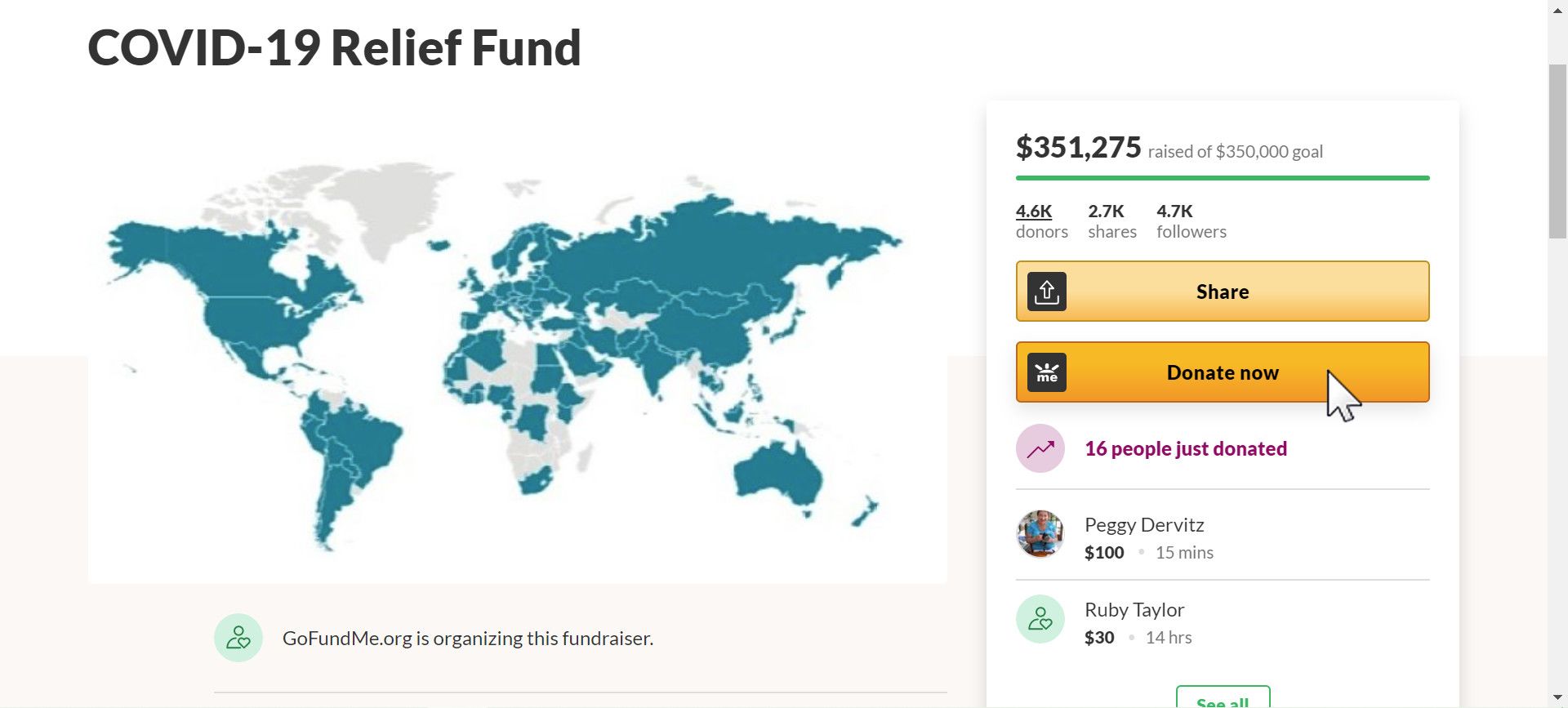
Gofundme released Covid-10 Relief Fund to help those who was affected by the pandemic, but it wasn’t as popular as others which created by individuals. (Credit: screenshot via Gofundme)
Gofundme released Covid-10 Relief Fund to help those who was affected by the pandemic, but it wasn’t as popular as others which created by individuals. (Credit: screenshot via Gofundme)
The New York Times reported that coronavirus-related campaigns on GoFundMe, the largest crowdfunding platform in the world, have rapidly increased by 60 percent, from 22,000 to 35,000 between March 20 and March 24. And now there are more than 112,251 campaigns waiting for support under the pandemic. The demand of charitable crowdfunding presents exponential growth.
“Crowdfunding is always related to the current issue, especially for the most popular one” says Jimmy Chi (紀旻伯), the product manager of the flyingV fundraising platform. “We are able to understand what issue really matters to the public.”
Compared with countries heavily hit by the pandemic, Taiwan was lucky with only 448 cases so far, however, the campaigns related to Covid-19 did not miss here. A crowdfunded campaign placed a full-page advertisement in the New York Times on 14 April, which has raised around NT$20 million, or £500,000 from more than 26,000 contributors in only 24 hours, to promote Taiwan as an ally in fighting against the Covid-19 pandemic.
Taiwanese Youtuber Ray Du (阿滴) and graphic designer Aaron Nieh (聶永真) create a crowdfunding campaign to highlight Taiwan’s contribution to Covid-19 and counter the ‘racism’ accusation by World Health Organization (WHO) Director-General Tedros Adhanom on April 9.
Taiwanese Youtuber Ray Du (阿滴) and graphic designer Aaron Nieh (聶永真) create a crowdfunding campaign to highlight Taiwan’s contribution to Covid-19 and counter the ‘racism’ accusation by World Health Organization (WHO) Director-General Tedros Adhanom on April 9.
In the past few years, crowdfunding has also become a new normal for Taiwanese people. According to Crowd Watch, more than 900 campaigns were successfully funded in 2019, raising more than NT$167 million, or £4 million. From baseball teams to eco-friendly cutlery, there are more people getting used to showing their support on crowdfunding projects.
Showing your support with a click
Crowdfunding opened a way for crowds to get involved in the social movements. Pride parade in Taiwan has been supported by crowdfunding for more than 4 years, which is one of the example showing how crowdfunding can opened a way for people to get involved in the social movements and activites. (credit: LalaTai )
Crowdfunding opened a way for crowds to get involved in the social movements. Pride parade in Taiwan has been supported by crowdfunding for more than 4 years, which is one of the example showing how crowdfunding can opened a way for people to get involved in the social movements and activites. (credit: LalaTai )
Online giving has increased over the years, Taiwanese charities also see crowdfunding as an effective way to seek support, which provides an opportunity to give help at any time, just with a simple click. Before the rise of online donation, charities used to rely on aid from the government and enterprises, however, donation from the public would be a concrete supply to their annual budgets. Kevin (陳凱翔), the founder of immigrant education group ONE-FORTY, explained the importance of the general funding support from the donors. “We seek the long-term donation not only because of the sustainability of our mission, also creating a stronger relationship with our donors.”
One-Forty is a non-profit startup on Southeast Asian migrant workers, founded by Kevin Chang in 2015. They provide education and skill training for these worker during their time in Taiwan. (Credit: One-Forty)
To achieve this, One Forty has a good use on social media to build up relationship with donors, they also hold exhibition every year to share their achievements with the public.
Creating crowdfunding campaign also is a popular option for charities to find new audience. Experts found that running the campaign could be a good way to spread information and build up connections with donors, which makes donation more engaging than ever.
Backer Founder, a crowdfunding consultancy in Taiwan, showing a good example of crowdfunding possibility on public issue. Nearly 80 percent of cases success under their consultant, and more than 30 percent of cases are related to social issue. Dahan Lin explains there is always some arguments about the formula of success, but in his point of vie, “It is more important to find a suitable fundraising type for each cases.”
Crowdfunding in Taiwan
There are several crowdfunding platforms in Taiwan since 2012, but some of them more focus on charitable cases. Kelly, the co-founder of charitable crowdfunding platform Dodoker (度度客), explained their idea on doing the right thing. “We would like to describe ourselves as charities’ partner, helping them to identify their objectivity and setting achievable goal.” Follow their guidelines, each case usually takes more than two month to get on board, which was challenging to a crowdfunding platform.
According to backtail.tw, more than 300 of charitable campaign waiting for support in 2019. Different from the traditional fundraising, crowdfunding in Taiwan usually prefer giving products to the donors as a reward, badge, flags and stickers are most popular rewards adopted by the charities. “These rewards are the evidence of crowdfunding engagement, highlighting donor’s contribution to the campaigns.” Dahan Lin pointed out rewards are usually essential in the fundraising process.
Crowdfunding platform is just an option to promote the campaign, but a long-term fundraising plan usually rely on continuing support. “So the story delivering is as important as asking the support from the public.”
The other side of story about crowdfunding
However, successful stories do not always happen. Behind the extraordinary project results on crowdfunding platforms, there were more efforts that charities were involved in that did not even get to half of their finance goals. According to the report, 56 percent of campaigns fail to meet their goals.
“Many charities are willing to prepare themselves for these opportunities, and they took lots of time learning new skills to run the campaigns online, but the result often disappoints them,” says Taro Chen (陳裕昕), the Secretary-general of a disabled charity New Chu-lun, “It’s heart-breaking to see so many efforts only bring NT$5000 (£120) back at the end.”
Comparing the popular ones and the misses, it reveals lots of information about what really matters to the public in that period of time, and how the generosity is strongly related to the story itself. “To be honest, crowdfunding is just another pathway for fundraising. If a charity can’t tell a good story in front of people, it is impossible to get better online.” Taro explained.
Crowdfunding could be poison to charities.
Hui-Ru Chen, the former professor of Nanhua University highlight the risk of crowdfunding in Taiwan. She has been studying crowdfunding campaigns in Taiwan since 2011, and current status of charity crowdfunding cases is worrying. “Fundraising is already quite competitive in Taiwan, and crowdfunding rely on more resource to involved.” By promoting campaigns on crowdfunding platforms, people still tend to donate to those charities they already knew.
Another concern she highlight was the ‘shopping’ behaviour of donation. “People will getting used to ‘shop’ on the platform based on the rewards and the first-sight impression of the campaign, but not look into detail of the campaigns,” says Chen, “this is not good for charities to build up relationship with donors.”
Simon also mention the legislation problem in Taiwan, which shows charities running crowdfunding campaigns are stand in the grey area. He was a certified accountant, now contribute his strength on identifying the financial problem of charities. Originally, charities needs to registered with the government for running fundraising campaigns legally. But the rise of crowdfunding has change the rules of fundraising, “The reward-base crowdfunding strategy blurs the border between donation and financial behaviour, causing the difficulties to regulate the campaigns.”
Exploring the cases he recently helped, it’s obvious that crowdfunding would not be an opportunity for those who cannot manage the organisation well. “Human resource, money and method is the basic element to a healthy organisation,” Simon explains, “If a charities is lack of any of them, there is no chance for them to find any opportunity through crowdfunding platform.”
“It’s just a tool, not the solution.”
How does the donor think?
I tend to donate to the minorities and the organisation which is less exposed to the publics.
I usually donate to the charities directly rather than the crowdfunding platform. I would like my donation fully used by the charity.
I usually donate to the campaigns through crowdfunding platforms, but I will follow up if my donation is wisely used in the project.
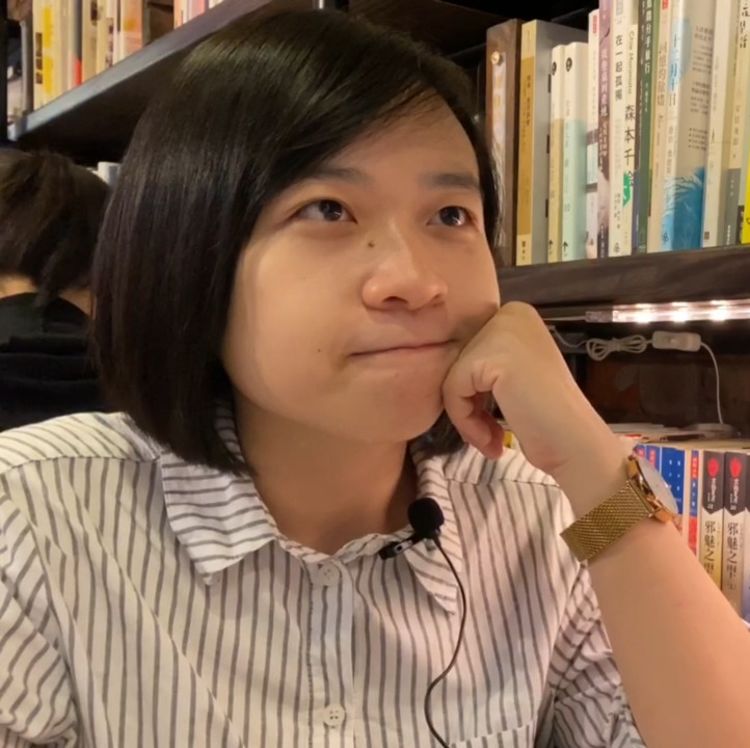
Yi Sien Lin (Credit: Min Hsuan Liang)
Yi Sien Lin (Credit: Min Hsuan Liang)
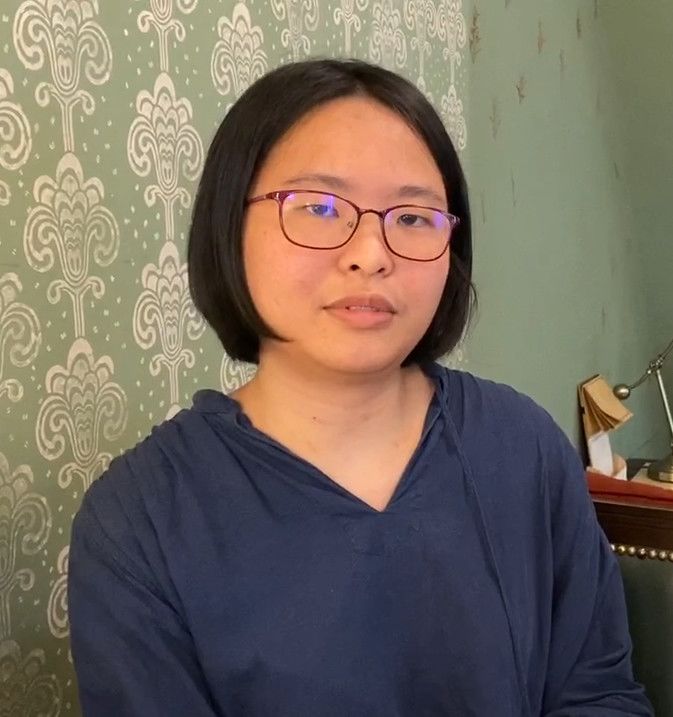
Peilin Wu (Credit: Min Hsuan Liang)
Peilin Wu (Credit: Min Hsuan Liang)
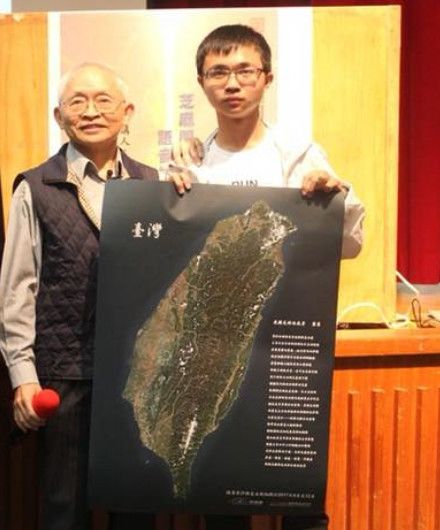
The power of a single good deed
The story of Hsin Chu-Lun, a charities aims to build a food truck for disabled people
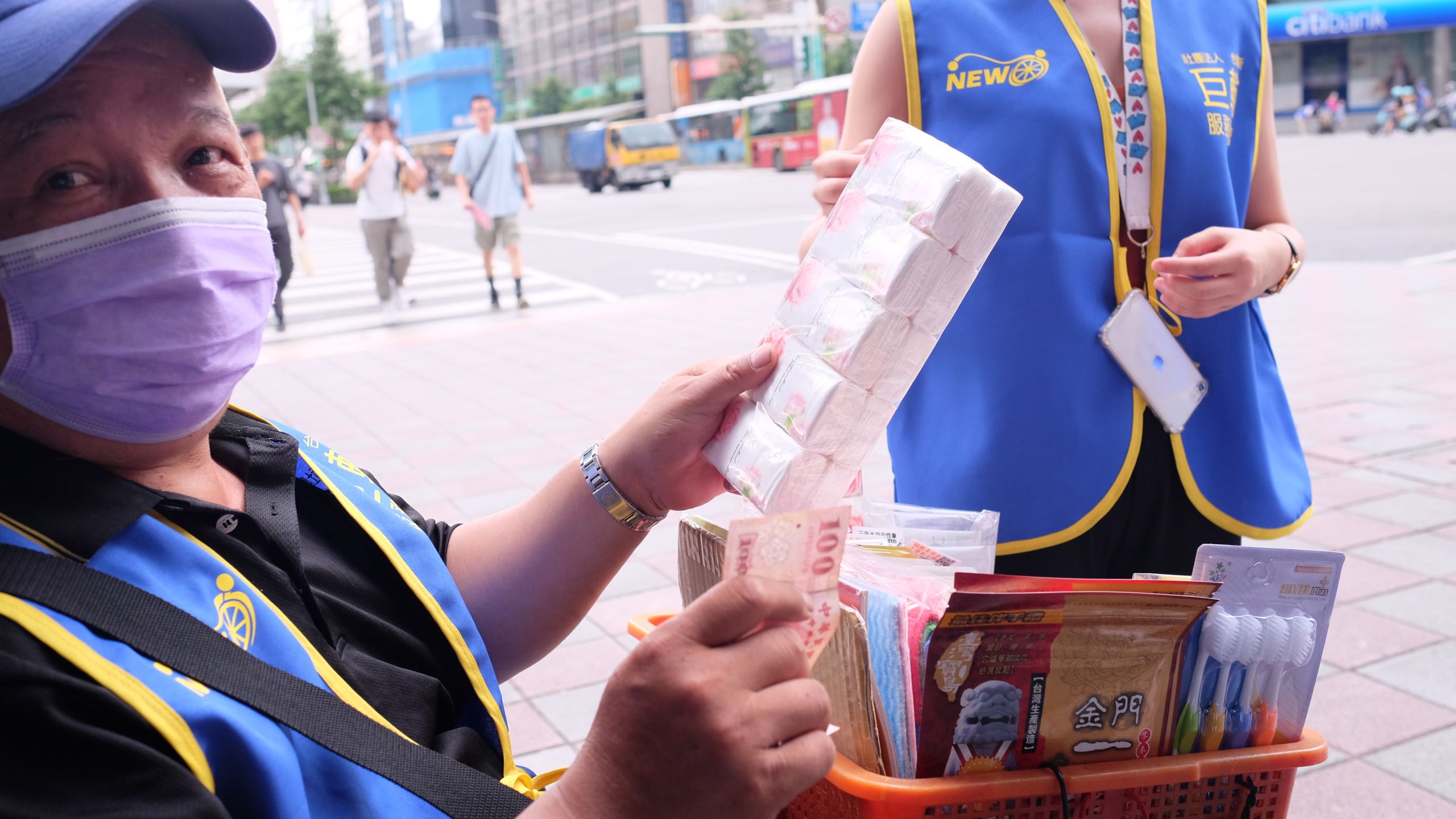
Before he joined Hsin Chu-lun, Taro was inspired by Andy’s story, “He is the most persevering I’ve ever met.”
Andy Chen (陳安宗), the founder of New Chulun, was diagnosed with Polio in his childhood and has been sitting in a wheelchair for more than 40 years. “I was one of them, so I can deeply understand how they feel, and how they would like to be treated,” says Andy with a strong conviction.
I was able to have a short conversation with him in his volunteering event, more than 35 people volunteered to cooperate with people on wheels to sell daily essentials on streets, the usual way people in this charity earn a living. “Some people think we are selling empathy, but actually this is the only way we can work independently.”
An introduction about Hsin Chu-Lun Association, a charity aims to help disabled people support themself and live a better life. (Credit: Hsin Chu-Lun Association)
Andy described he was struggling with his life in the early twenties, although he is a tough-minded person and never gives up easily with his disability, but the society hardly fits him in. He failed to find a job to earn a better living, not even a disabled-friendly house. He eventually found that selling daily essentials is the only way to live. After these experiences, he decided to found New Chu-lun to advocate the rights of disabled people, and try to ease the discrimination about the way they live.
Although the public has more understanding of Andy and disabled people through his charity, street selling is still in a grey area, that’s how he started thinking about creating another career option for his people. He was invited to a philanthropic market in 2018, and got the ideas from the food vendors. Seeing people lined up in a queue for the food, “Why not build a food truck for disabled people?”
“We are unable to leave our wheelchair, but we still can be a good chef.” Andy smiled. He decided to execute the idea with his partner, planning to build a truck with universal design for disabled people.
He firstly pitched his ideas to enterprises, but was always turned down due to the safety problem, “No one has done this before in Taiwan, and people are afraid to give a try on this.”
That’s how he found crowdfunding could be an opportunity. Charity always needs to find new donors and communicates with them, and crowdfunding sounds like a similar thing. He visited several companies who are selling food trucks, and invited experts and designers to finalise his ideas.
The campaign was up on flying on 31 October 2019, and eventually received support from more than 900 people, raising NT$1.3 million (£30,000) at the end, which is enough to execute their idea.
The food truck is going on the road in July 2020, and the whole charity was busy on it. Andy said the most valuable thing he got during the crowdfunding wasn’t the joy of success, “There are more people getting to know us through this campaign, which encourages us to go further.”
Members of Hsin Chu-Lun practice to prepare bento for sell. (credit: Min Hsuan Liang, footage provided by Hsin Chu-Lun)
Members of Hsin Chu-Lun practice to prepare bento for sell. (credit: Min Hsuan Liang, footage provided by Hsin Chu-Lun)
Approaching the group in the corner of the street, Johnny (阿興) is selling a bag of tissues to a man who stops in front of him. I asked him about the food truck plan in the coming future, “I am really excited about it. Although I cannot cook at the moment, I can learn how to prepare food for people in the future,” says Johnny. There are lots of efforts need to be done, but I can see the happiness in his eyes.
They plan to go to rural places, where people cannot easily buy food next door. “We usually receive support from people on the street, but now, we can support those who need it.”
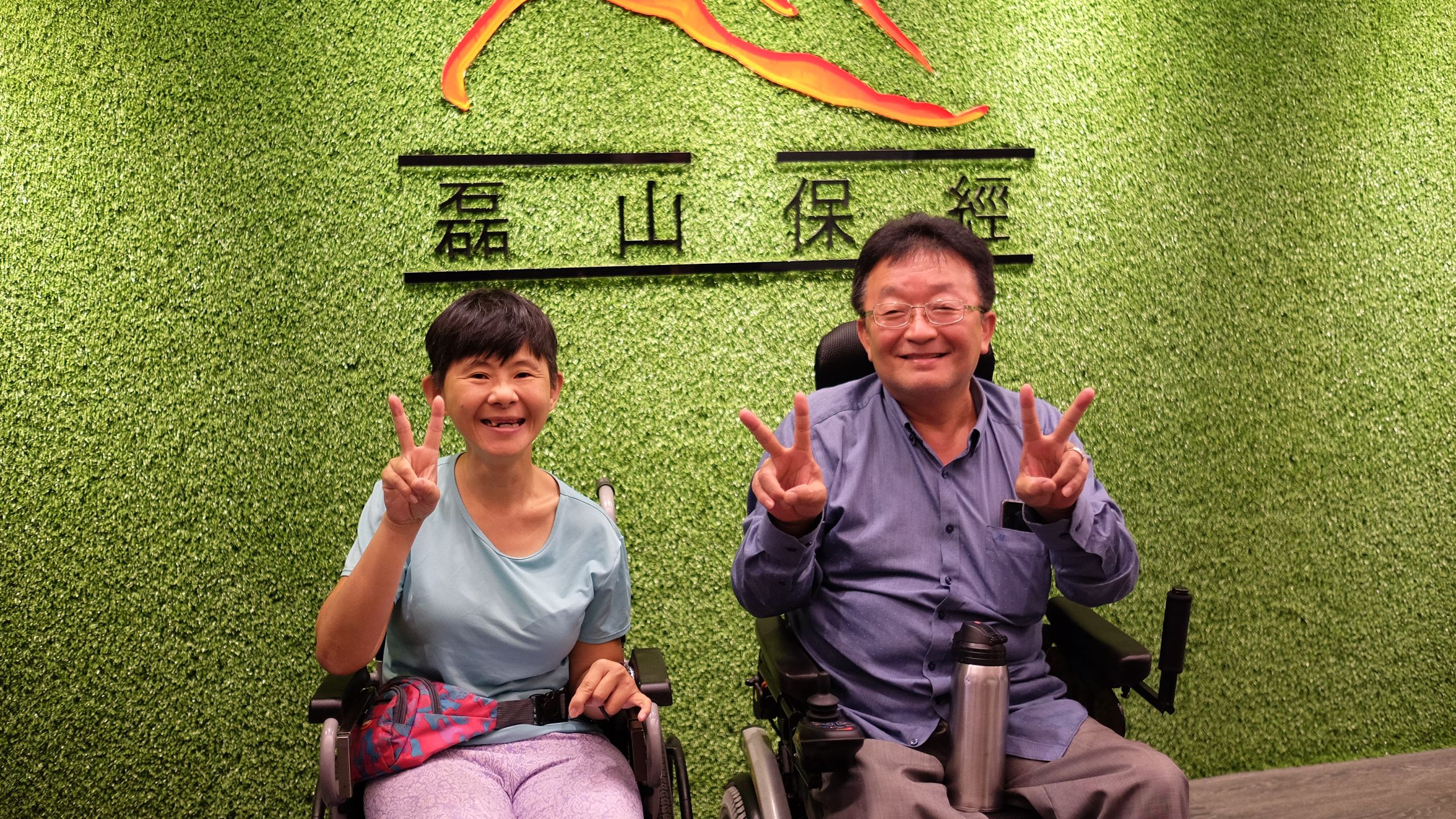
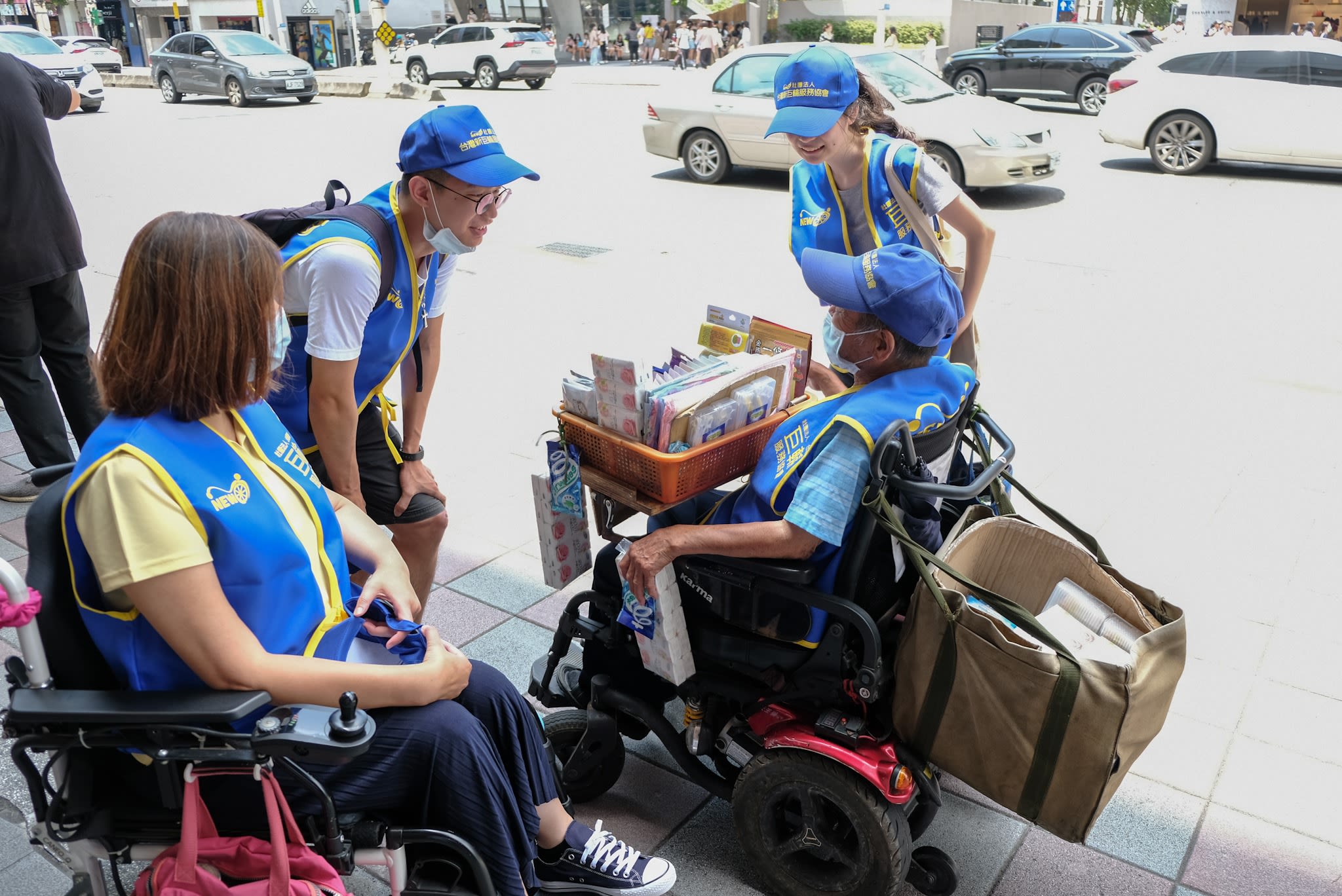
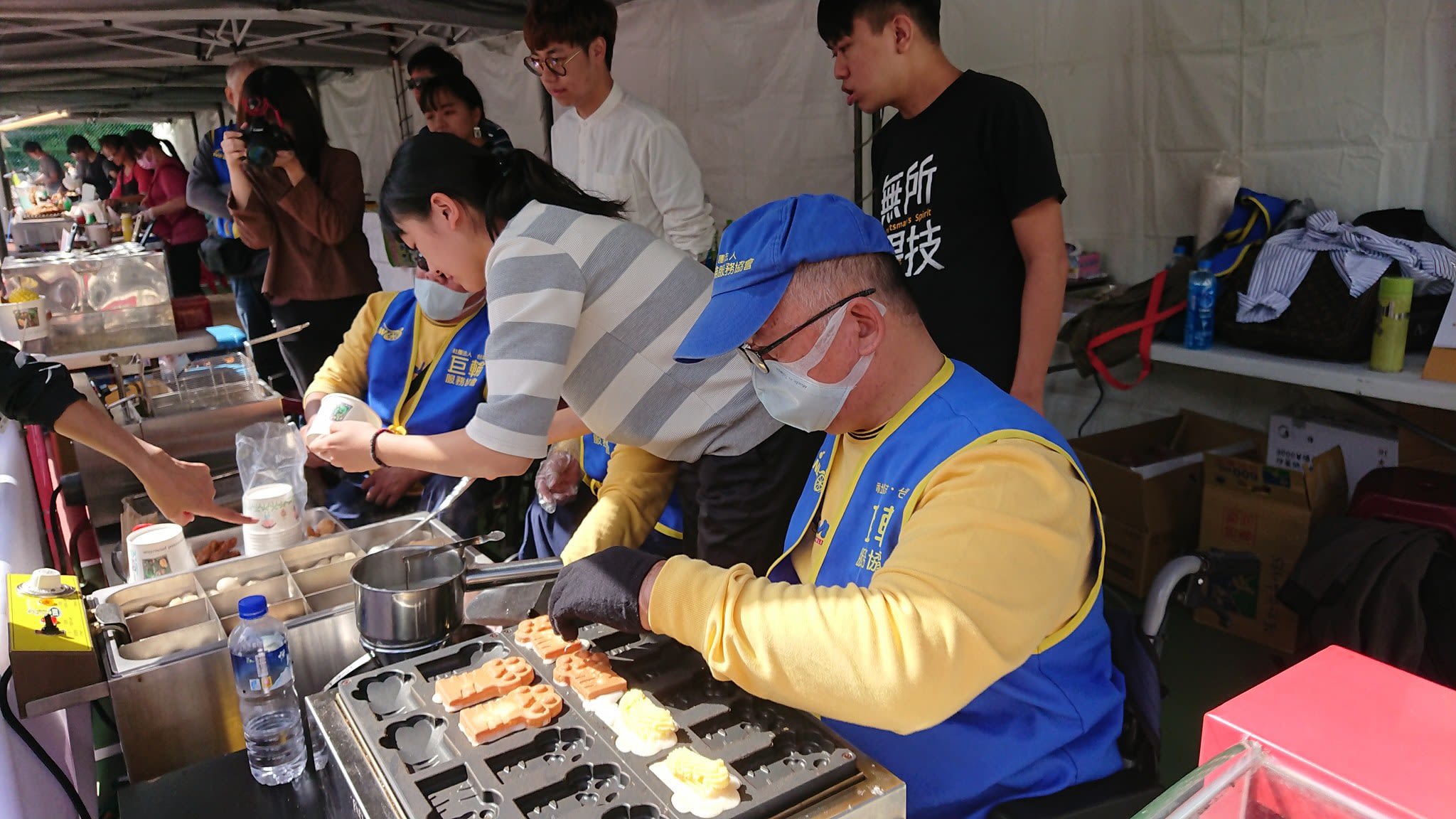
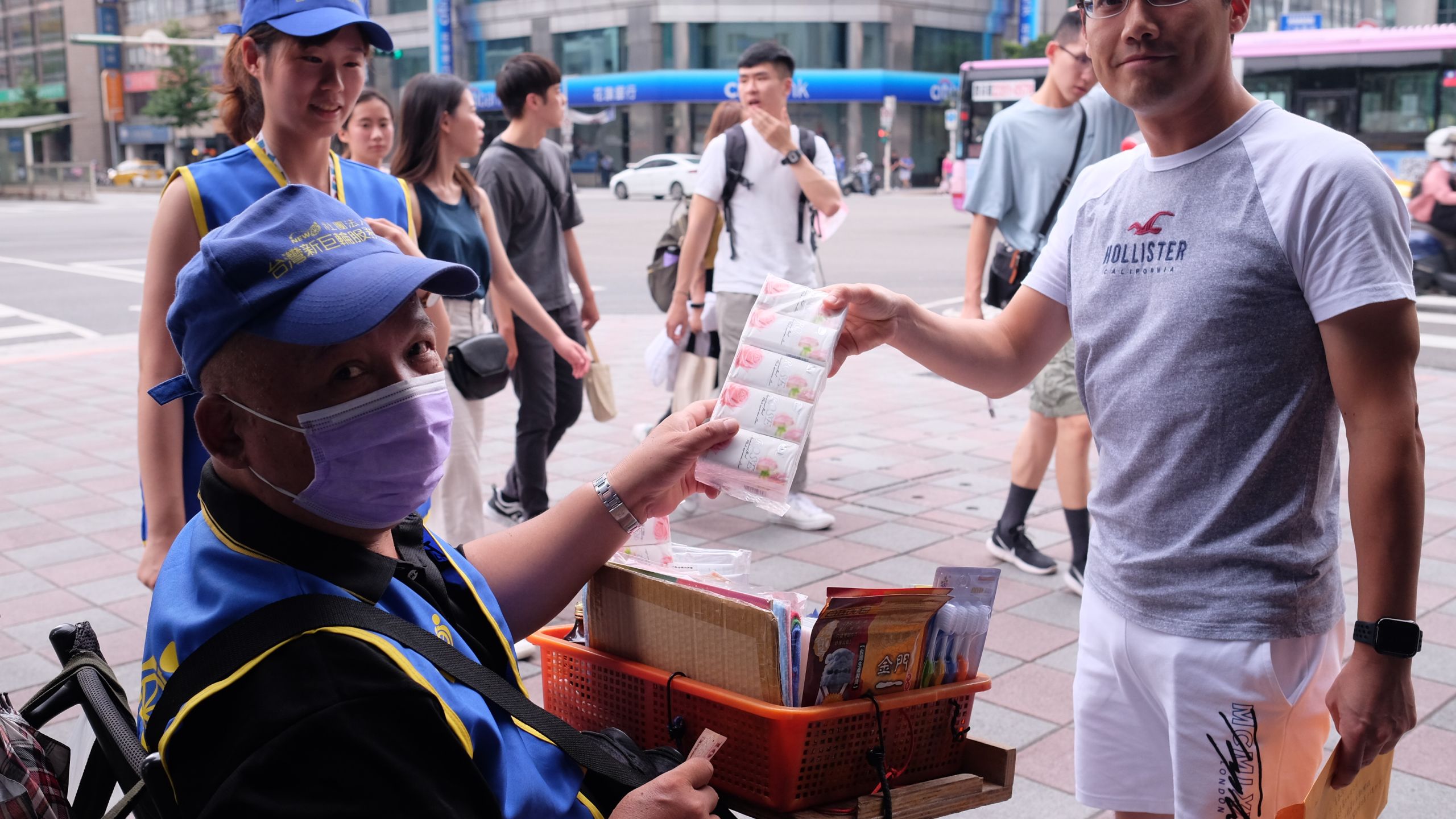
“We do fundraising, but not crowdfunding"
Imaging a better way to build a longer relationship with donors
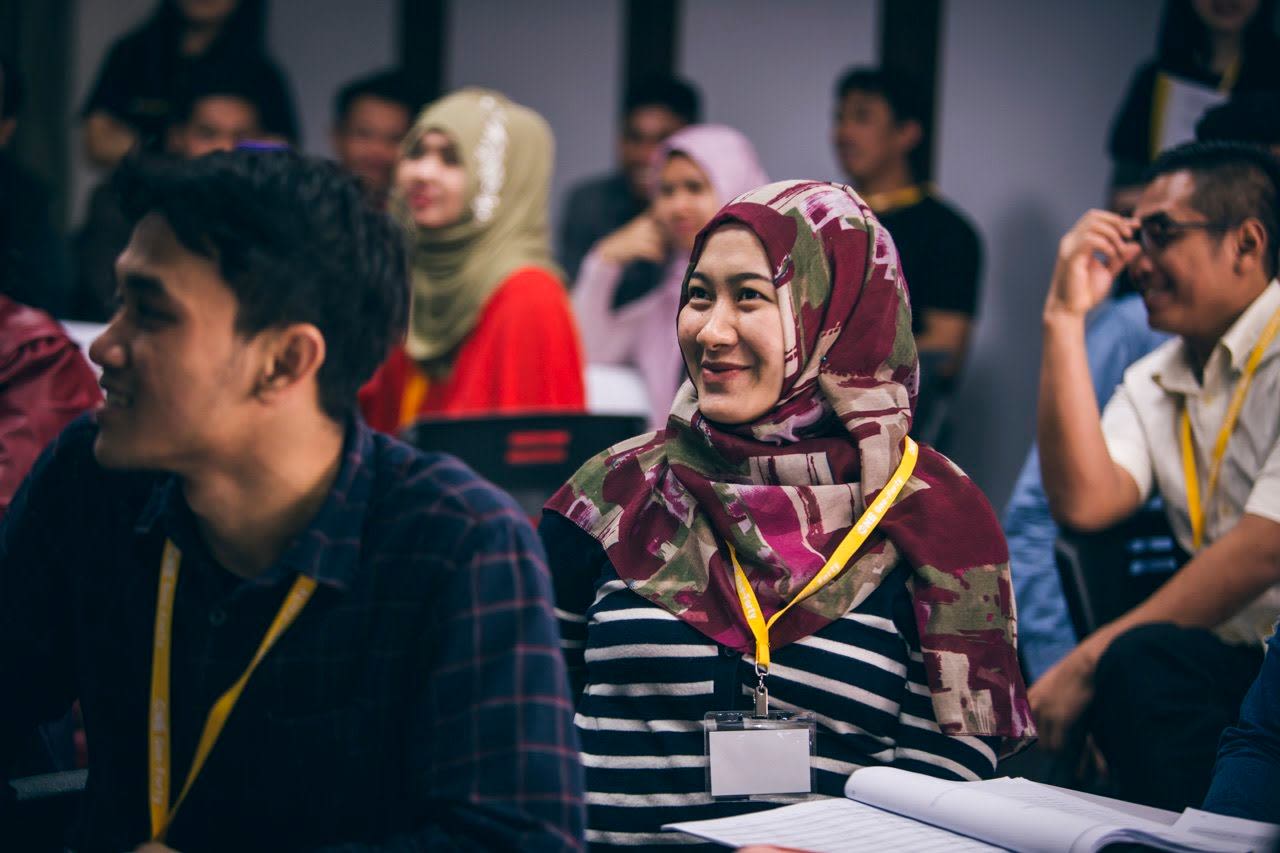
“We do fundraising, but not crowdfunding,” Kevin Chen, the founder of One-Forty, explained the values he believe in NPO donations. He founded the charity in 2015, helping foreign workers and immigrant fit into Taiwanese communities. This is a small charity with only seven staffs, but they has won several prizes on their contribute to the society. “We are quite small, but we dream big.” says Kevin.
Comparing to other issue, migrants wasn't a popular topic in Taiwan five years ago. Although more than 30 thousand of foreign workers arrived every year, they were not seriously treated as part of the communities. Kevin started focus on these workers in his college life, coming up the idea to build a welcome communities for them.
At the beginning, his idea was praised by the government and the non-profit communities, but still unfamiliar to majority of people. They need to work harder to push online donation further. One-Forty created ‘The immigrant’s school’ campaign in 2017, but only after a year, there are more people notice about them. “We worked so hard on delivering our message and values to the audiences, inviting them to join and make the changes of migrants’ life.”
Kevin explain how the execute the idea by preparing a classroom near the Taipei main station, which is the heart places for migrants get together in weekend. One-forty prepare several classes for them, to introduce them the Taiwanese culture, and the basic Taiwanese as well. “It’s surprising that there is a huge demand of our classes.” They now add more options for the classes, with teachers who can teach in their native language, they also provide career training, such as Math and accounting, for those workers who want to start up small business after they are back to their countries.
One Forty also create a Youtube channel for workers who isn't able to attend in-person classes. (Credit: One Forty)
“We prefer the continuing support, that’s why we work so hard to communicate with our donors,” Kevin explains crowdfunding in Taiwan usually is project-base, which focusing on short-term goals, but One-Forty is working on a long-term project with workers.
They came up another project “Good friends for learning” this year, which has been tested for a year. Although the courses is widely welcomed by the immigrant workers, the in-person teaching is not available for those workers who could not leave their work easily, especially for those who is taking care with patients. They sent over one thousand packs of learning bag to the workers needed, and received generally positive feedback about this project, and now they are ready to launch.
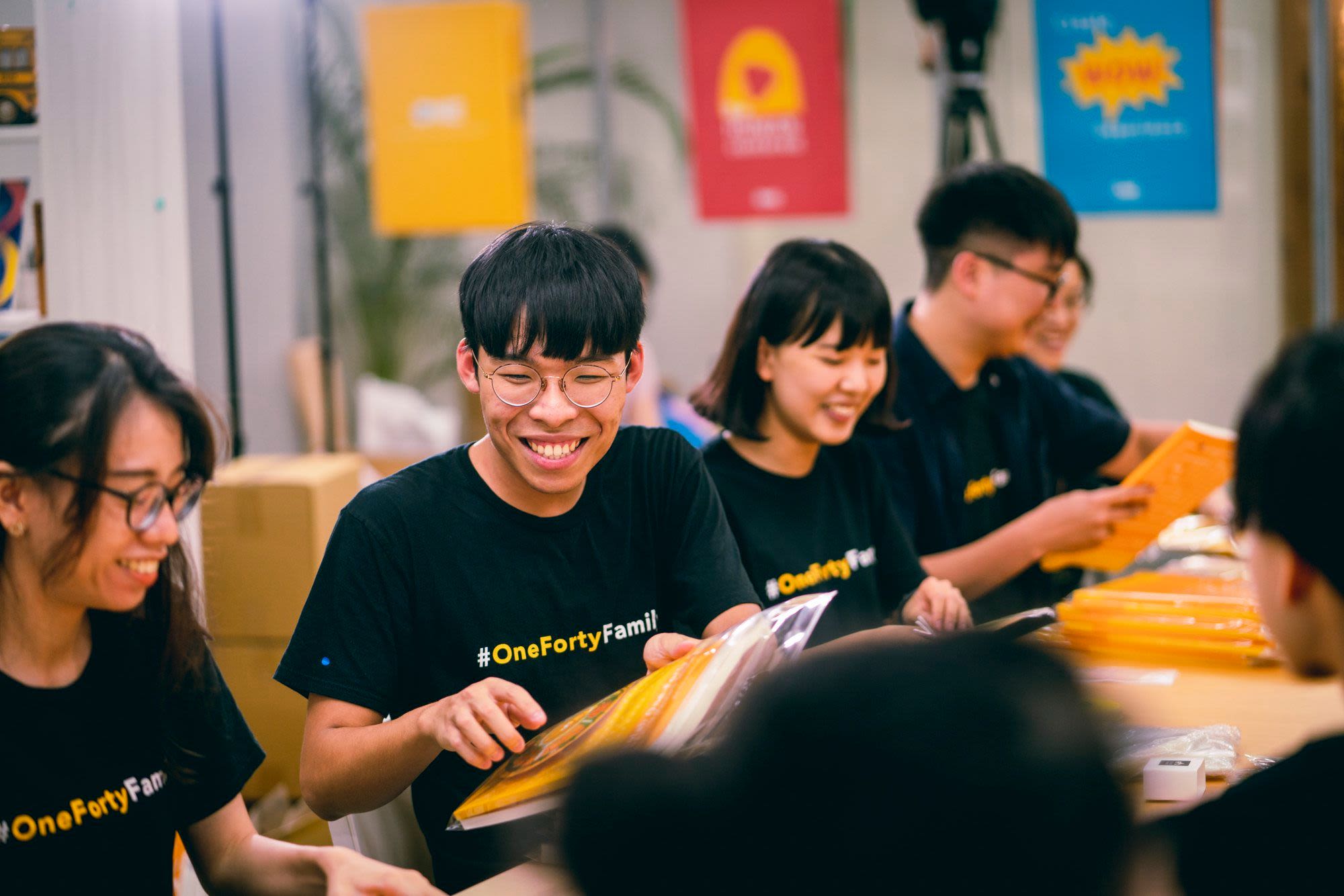
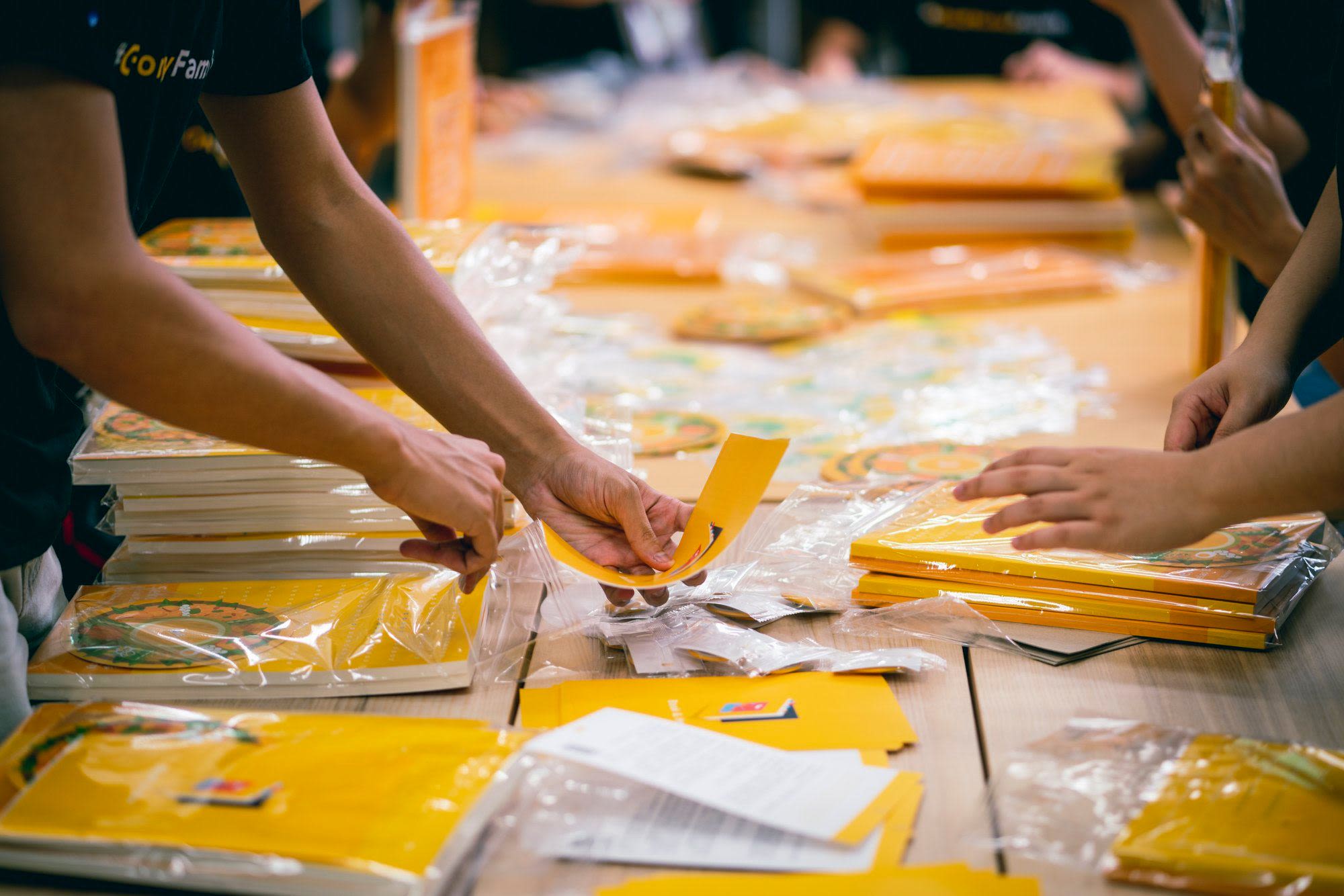
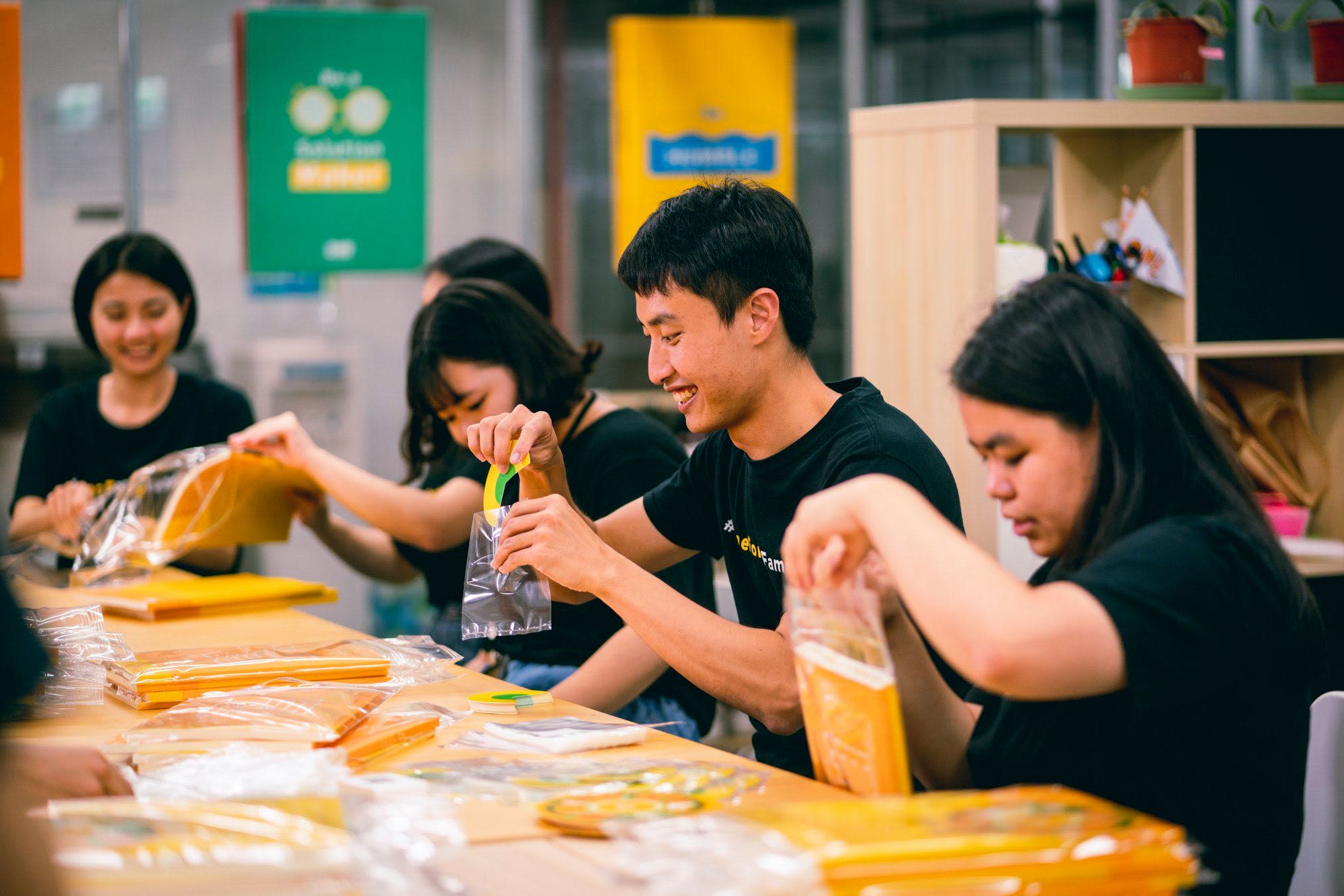

Members and volunteers of One Forty packing the learning bag for migrant workers. (Credit: One Forty)
Members and volunteers of One Forty packing the learning bag for migrant workers. (Credit: One Forty)

These package will be deliver to more than three thousand migrant workers across the country. (Credit: One Forty)
These package will be deliver to more than three thousand migrant workers across the country. (Credit: One Forty)

Kevin explains "Good Friend of workers" has been tested since 2018, and now they are ready to launch to the public for fund raising. (Credit: One Forty)
Kevin explains "Good Friend of workers" has been tested since 2018, and now they are ready to launch to the public for fund raising. (Credit: One Forty)
“We need to make sure these tools really can solve the workers’ problem, from communicating with their clients to cooking traditional Taiwanese food,” says Kevin. Unlike most of the crowdfunding presenting their future plans and ask for donation, One-Forty want to show they are prepared and asking for the support from the public. “Every plan we launched is still continuing, what we want to deliver is to ask more people join the communities we create.”
According to Kevin, there are more than 300 people join to support their project by donating NT$500 (GBP$12) a month, and they aims to collect 500 donors to keep this project continuing for a year. “Our donors are quite loyal to us, because we have a strong connection in each activities we held before,” Kevin said, “and these could support One-Forty to move forward and help more immigrant workers in the future.” In his point of view, what they have done is creating a community, “building a stronger and friendly society to everyone who live here.”

